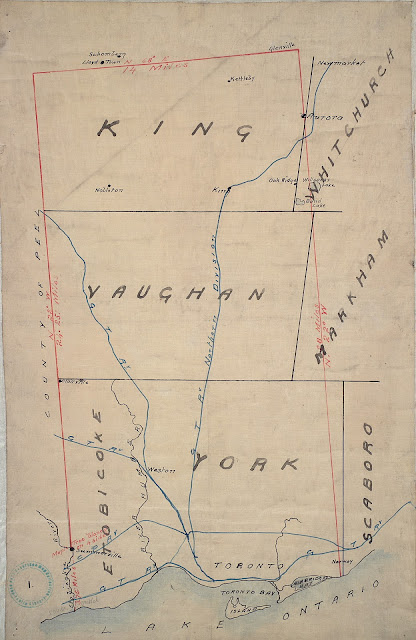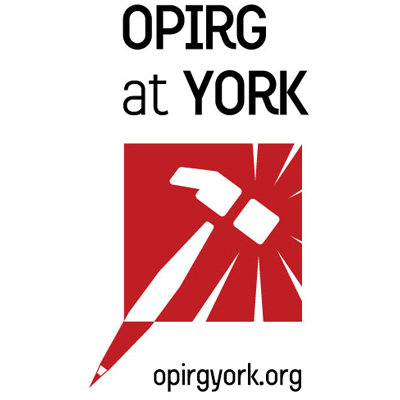KNOW THIS LAND
OPIRG York is situated on lands deeply rooted in the histories, cultures, and present-day identities of several Indigenous nations. At different times, this land has been stewarded and defended by communities of the Huron-Wendat, the Haudenosaunee Confederacy, and the Anishinabek Nation. We acknowledge the current treaty holders, the Mississaugas of the Credit First Nation, and the principles which underpin the Dish with One Spoon Wampum Belt Covenant, an agreement to peaceably share and care for the Great Lakes region.
Aware of the legacies of dispossession, colonialism and the struggles of Indigenous nations to disentangle themselves from our colonial present, we take seriously our responsibility in both histories of oppression and to contemporary struggles for emancipation.
At OPIRG York, we believe that land acknowledgements are a start. It helps us recognize that
“[i]t’s one thing to say, “Hey, we’re on the territory of the Mississaugas or the Anishinaabek and the Haudenosaunee.” It’s another thing to say, “We’re on the territory of the Anishinaabek and the Haudenosaunee and here’s what that compels me to do.” – Hayden King, Toronto Metropolitan University
It is in this spirit that we offer resources that provide a critical look at the history of Tkaronto and an outline of the communities and institutions that today make up the city’s vibrant and growing Indigenous community.
RESOURCES
As a public interest research group, we are committed to direct our members and the wider community to resources that may help you learn more about Indigenous Toronto. Below are some resources – both academic and popular – that may be of interest to you.

Boundaries of the Toronto Purchase, 1787-1805.
Courtesy of the Toronto Public Library.
BOOKS
- Bolduc, Denise et al. Indigenous Toronto: Stories That Carry This Place. Ed. Denise Bolduc et al. Toronto: Coach House Books, 2021. Find it at a York University library here.
- A Treaty Guide for Torontonians, Jumblies Press and Toronto Biennial of Art in partnership with Art Metropole: https://artmetropole.com/shop/14892
- Sanderson, F., & Howard-Bobiwash, H. (1997). The meeting place: aboriginal life in Toronto. Native Canadian Centre of Toronto.
ARTICLES
- Freeman, Victoria. “Toronto Has No History! Indigeneity, Settler Colonialism and Historical Memory in Canada’s Largest City,” Urban History Review, 38, no.2 (Spring 2010), 21-35.
- Heather Howard-Bobiwash. “Women’s Class Strategies as Activism in Native Community Building in Toronto, 1950-1975.” American Indian Quarterly, vol. 27, no. 3/4, 2003, pp. 566–82. JSTOR, http://www.jstor.org/stable/4138963. Accessed 18 Oct. 2022.
- Lytwyn, Victor, P. “A Dish with One Spoon: The Shared Hunting Grounds Agreement in the Great Lakes and St. Lawrence Valley Region,” in David H. Pentland, ed., Papers of the 28th Algonquian Conference (1997).
- Simpson, Leanne. “Looking after Gdoo-naaganinaa: Precolonial Nishnaabeg Diplomatic and Treaty Relationships,” Wicazo Sa Review vol. 23, no.2 (2008).
INDIGENOUS TKARONTO
Below is a list of some institutions and initiatives that are reinscribing Indigenous presence, culture and history in metropolitan Toronto.
- Centre for Indigenous Student (CISS) Services: https://aboriginal.info.yorku.ca/
CISS strives to create a sense of belonging and to support the academic, spiritual, physical, and emotional well-being of a diverse Indigenous student population. We provide a safe community space that offers culturally appropriate support services and programs to facilitate students’ success throughout their post-secondary studies.
- Centre for Indigenous Theatre: https://www.indigenoustheatre.com/
CIT contributes to the advancement of an Indigenous cultural economy and the Arts generally, helping to mould young talent and professionals, organizing community presentations and workshops, and by working closely with alumni to share our learnings and our craft in a culturally appropriate and inviting setting.
- CIUT 89.5 FM Community Radio, Indigenous Waves Program with Jenny Blackbird and Jennifer Sylvester, Mondays 6-7pm: https://ciut.fm/shows/indigenous-waves/
Indigenous Waves is a celebration of Indigenous cultures; locally, nationally and globally. Through music, storytelling, interviews, panel discussions, art, and humour we explore the diversity of Indigenous Peoples.
- First Story Toronto App and Bus Tour: https://ncct.on.ca/programs/first-story-toronto-app-bus-tour/
Many Indigenous communities have left their mark on our city’s past and present and continue to shape its future. The First Story app is an interactive map accessing original stories, photographs, archival documents, audio and video clips that illuminate the evolving Indigenous history of the Toronto area. This grassroots community application was developed at the Native Canadian Centre of Toronto in partnership with CEntre for Community Mapping. First STory endeavours to bridge traditional knoweldge with social media, inviting users to explore Toronto’s history as told from the perspectie of Indigenous communities.

Photo credit: Ogimaa Mikana: Reclaiming/Renaming
https://ogimaamikana.tumblr.com/post/140825126626/if-you-want-to-learn-something-first-you-must
Photo credit: Ogimaa Mikana Reclaiming/Renaming
https://ogimaamikana.tumblr.com/post/120521863161/formerly-davenport-rd-and-spadina-rd
- Indigenous Students’ Association at York: https://www.facebook.com/IndigenousSAY/
The Indigenous Students’ Association at York (ISAY) is a student run group under the York Federation of Students. ISAY’s mandate is to advocate for Indigenous students, create cultural programming, social events and community outreach. ISAY has hosted events like Rattle Making, Metis Culture Workshop, Inuit Storytelling, First Nations Teachings, Afro-Indigenous Open Mic Night, 2S Sharing Circle, MMIW Pin Bead Workshop and more.
- imagineNATIVE: https://imaginenative.org/
imagineNATIVE promotes Indigenous-made media by developing platforms for artists to assert their voices, express their perspectives, and share their cultures.
- Indigenous Schools and Programming in Toronto: https://www.tdsb.on.ca/Community/Indigenous-Education/Schools
- The Ogimaa Mikana Project: https://ogimaamikana.tumblr.com/
The Ogimaa Mikana Project is an effort to restore Anishinaabemowin place-names to the streets, avenues, roads, paths, and trails of Gichi Kiiwenging (Toronto) – transforming a landscape that often obscures or makes invisible the presence of Indigenous peoples. Starting with a small section of Queen St., re-naming it Ogimaa Mikana (Leader’s Trail) in tribute to all the strong women leaders of the Idle No More movement, the project hopes to expand throughout downtown and beyond.
- Talking Treaties at Jumblies Theatre: http://www.jumbliestheatre.org/jumblies/talking-treaties-history-project
Rooted in oral history and community collaboration, Talking Treaties is a multi-year Jumblies collaborative project that artfully shares Indigenous history and awareness of the place now called Toronto. Launched in 2015, Talking Treaties is directed by Ange Loft, in collaboration with Victoria Freeman and others. Talking Treaties has many branches and has engaged thousands of participants in generating symbols, poetry, improvised maps and performative explorations.
- Native Canadian Centre of Toronto: https://ncct.on.ca/
Native Canadian Centre of Toronto is a membership-based, charitable organization located in the heart of downtown Toronto in abeautifully renovated heritage building. NCCT offers a wide range of programs and services based on Indigenous cultural traditions and teachings. All are welcome.
- Na-me-res: https://www.nameres.org/
Through a culture-based approach that addresses the holistic needs of its clients, Na-Me-Res’ (Native Men’s Residence) mission is to provide outreach services and permanent housing to Indigenous men experiencing homelessness in Toronto while providing outreach and support services to the broader population.
- Toronto Council Fire Native Cultural Centre: https://new.councilfire.ca/
Toronto Council Fire Native Cultural Centre is an autonomous, vibrant cultural agency that involves and serves the Indigenous community with confidence for and commitment to their well-being.
- Yellowhead Institute: https://yellowheadinstitute.org/
Yellowhead Institute is an Indigenous-led research and education centre based in the Faculty of Arts at Toronto Metropolitan University. The Institute privileges Indigenous philosophy and amplifies Indigenous voices that provide alternatives to settler colonialism in Canada today. Rooted in community networks, Yellowhead offers critical and accessible resources to support the reclamation of Indigenous land and life.


